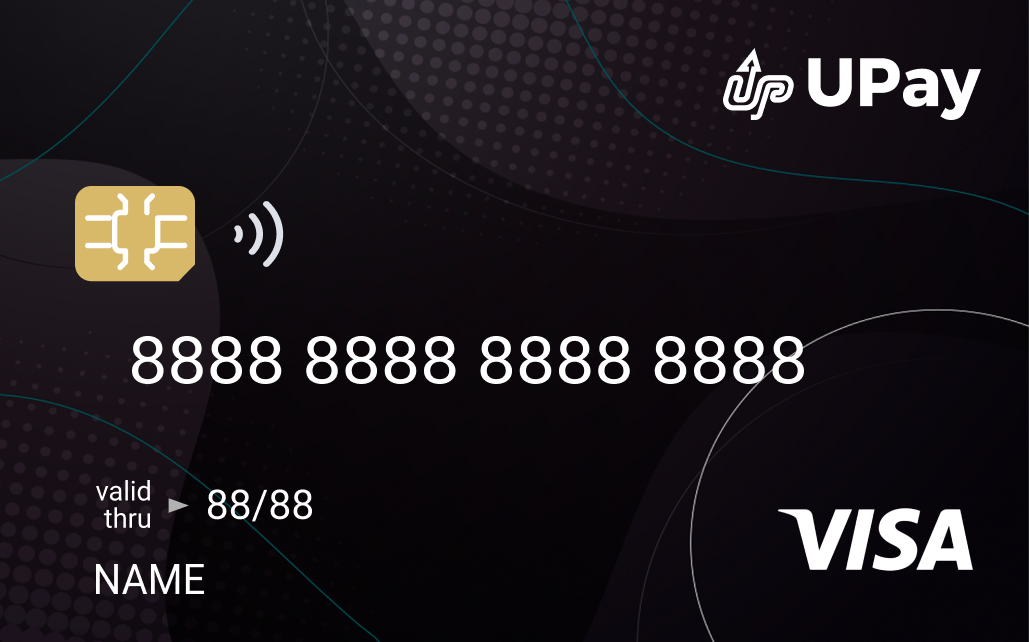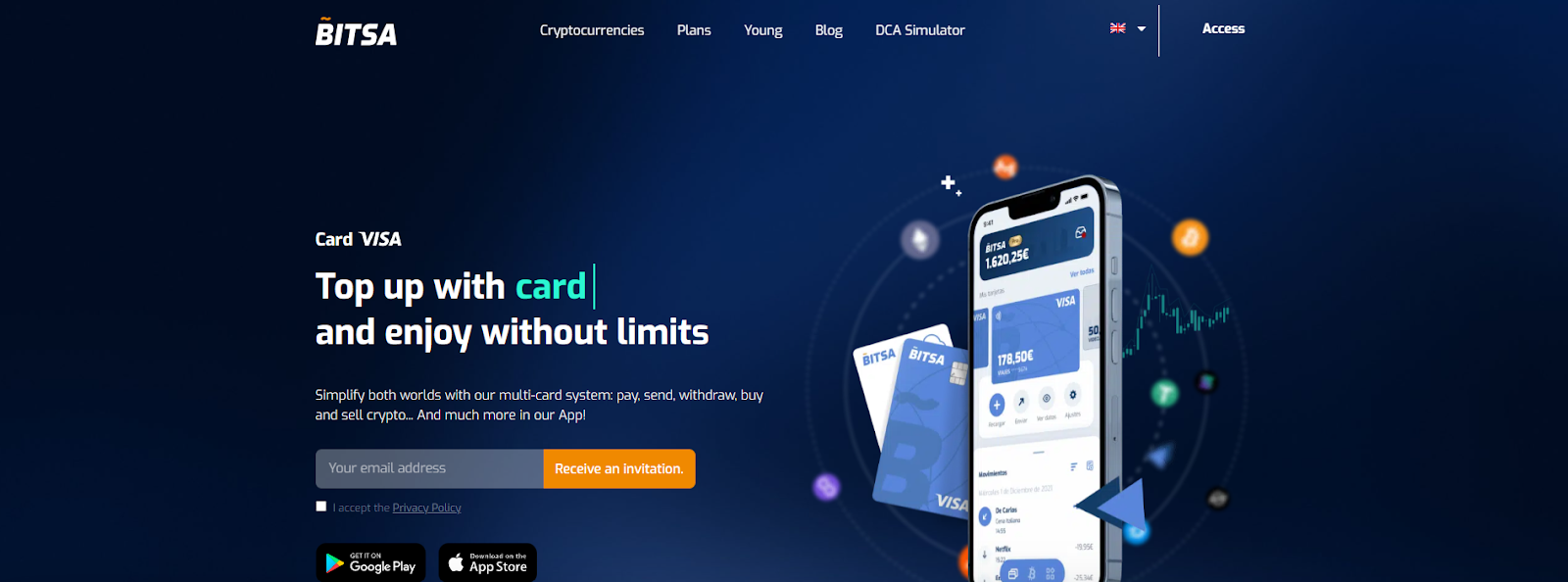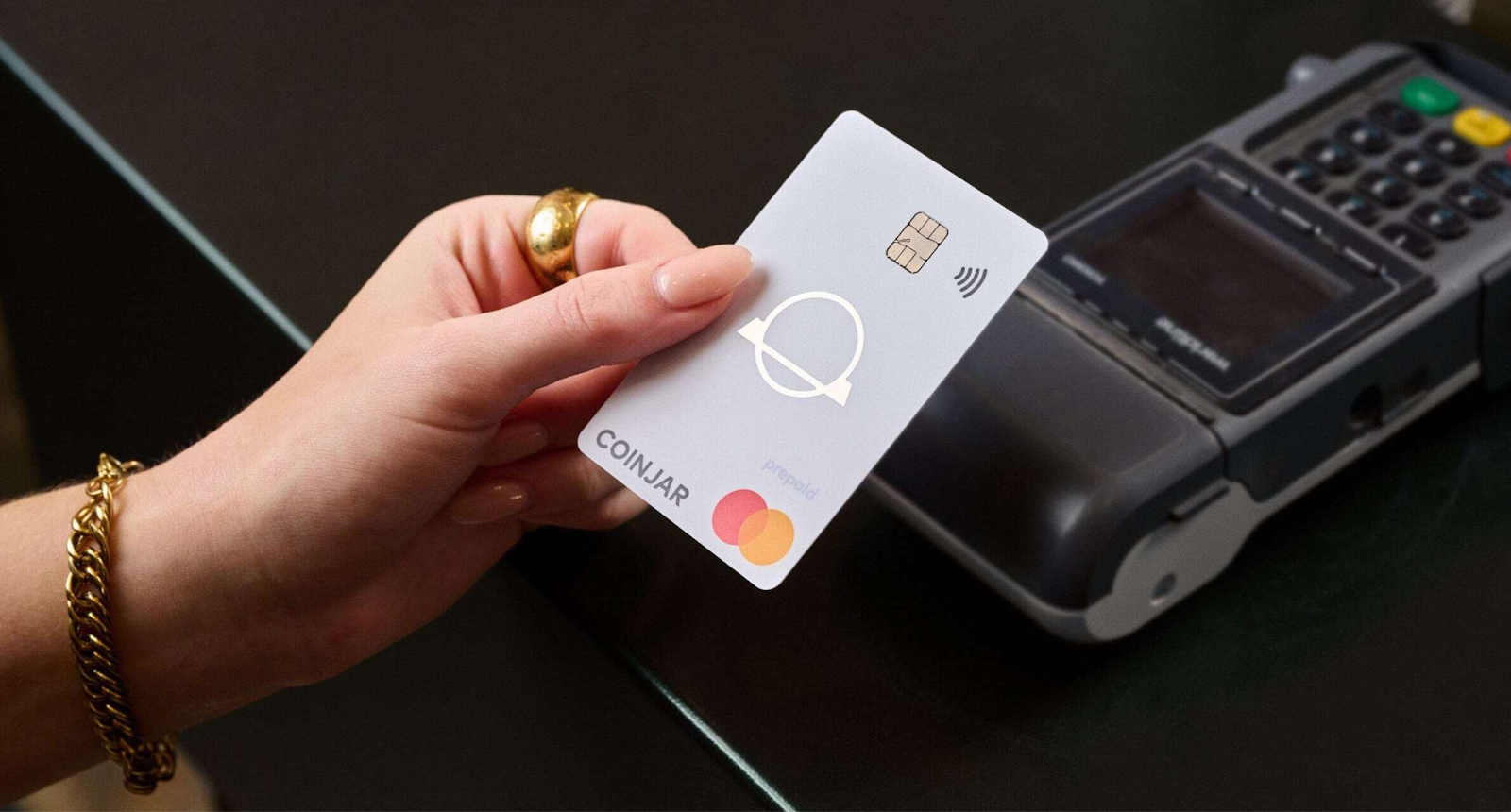Above the fold: Discover the freedom of spending your crypto with Apple Pay-compatible payment cards. These cards provide effortless integration and enable you to use your digital assets at millions of locations around the world. Enjoy the convenience of contactless payments and added perks with our selection of top crypto payment cards for 2025.
Summary
What are Apple Pay Supported Crypto Cards
Apple Pay supported Crypto Cards are advanced debit or prepaid cards designed to facilitate everyday spending using cryptocurrency through the Apple Pay platform. Issued by crypto-forward payment providers, these cards seamlessly integrate digital assets with conventional payment systems. They function similarly to traditional Visa and Mastercard products at point-of-sale locations and can be easily added to the Apple Wallet for added convenience. Depending on the card issuer, users may enjoy unique features such as cryptocurrency cashback, reward programs, and multi-currency capabilities.
List of the Best Apple Pay Supported Crypto Cards to Watch in 2025
| Card Name | Top Features | Pros | Cons | |
| Crypto.com | Up to $1,000,000 balance | 15+ supported cryptocurrencies | High-tier cards are expensive | |
| UPay Platinum Card | Available in 168+ Countries | High spend limits | No ATM cashouts | |
| Bista Card | Supports 20+ cryptos | Multi-currency card | Monthly fee charges | |
| CoinJar | Free Physical Card | No issuance fee | Charges for dispute resolution | |
| Trastra Card | European IBAN Account Linking | Strong security features | Low ATM limits |
Best Apple Pay Crypto Cards Reviews
- Crypto.com: Up to $1,000,000 Balance for Top-Tier Cards

The Crypto.com Visa card has earned a distinguished spot in this Apple Pay crypto cards review. Users can select from six different card tiers tailored to various spending preferences and needs. Lower-tier cards, such as Midnight Blue and Ruby Steel, provide fundamental functions like ATM withdrawals and standard payment capabilities. Higher-tier options, however, come with enhanced perks, including permanent rebates, access to airport lounges, exclusive experiences in F1 and UFC events, and balance limits that can reach up to $1,000,000.
| Highlight: The Crypto.com Visa card allows users to stake CRO, the platform’s native coin, and earn cashback on purchases, as well as up to 100% rebates on services like Netflix. |
The Crypto.com Visa card is accessible in over 200 countries, including the United States. It offers flexible funding options, supporting both fiat and cryptocurrency methods. The card is compatible with more than 15 digital assets, such as BTC, ETH, MANA, DOGE, ADA, USDC, USDT, and THETA. While Crypto.com enables users to maintain high balances by staking CRO, monthly cashout limits are set at $5,000 for the lowest-tier card and $10,000 for the Obsidian card.
Costs and Fees
Issuance and Activation: Free for Midnight Blue, $500 for Ruby Steel, $5,000 for Jade Green, $50,000 for Icy Wagite and $500,000 for Obsidian
Transaction Costs: Variable after free monthly limit
Annual Fees: None
| Pros | Cons |
| Lots of benefitsSupports high balancesNo annual feesMulticurrency support | Extremely high fees for high tier activationMost benefits are in the high tier cards |
- UPay Platinum: Global Availability And High Spend Limit

The UPay Platinum is our second-best Apple Pay crypto card, designed to impress with its high card balance and generous spending limits. This virtual card allows for a maximum hold amount of $200,000, with a monthly spending limit of up to $100,000—far superior to many other options on the market. Additionally, anyone can access this card for free, and it can be activated with a minimum deposit of just $10. Just keep in mind that, as a virtual card, it does not support ATM withdrawals.
| Highlight: UPay Platinum mimics a credit card. It allows you to spend without directly debiting your balance, complete with flexible terms and zero credit score impact. |
The Upay card stands out as the ideal travel companion, accepted in over 168 countries worldwide. It also prioritizes your security, as UPay adheres to various regulations, including those set by the US MSB, Canada’s MSB, and Hong Kong MSO. Additionally, help is always at your fingertips. You can count on 24/7 multilingual support, available through both email and live chat..
Costs and Fees
Issuance and Activation: $10
Transaction Costs: Zero Transaction Fee
Annual Fees: Zero Annual Fees
| Pros | Cons |
| Low activation costHigh spend limitsGlobal accessibility | No ATM withdrawals |
- Bista Card

Bista secures the third spot on our 2025 list of top Apple Pay-compatible crypto cards. This Spain-issued debit card supports nearly 20 cryptocurrencies, including BTC, ETH, LTC, USDT, USDC, and DAI, with EUR as its primary transactional currency. It integrates seamlessly with Spain-based IBAN accounts for easy deposits and top-ups. its major drawback is the absence of a crypto swap feature, defaulting all transactions to EUR.
| Highlight: Bista offers three card tiers. The lowest tier is free but has an annual balance limit of €2,500. The highest tier costs €9.99 per month and allows a maximum annual balance of €360,000. |
The Bista card is available in around 40 countries, including Austria, Denmark, Finland, France, Italy, Poland, Spain, and Sweden, but it isn’t offered in the US. Customers have the option to choose between a virtual card and a physical one, although the latter comes with a fee of 20 EUR for ordering. Aimed at budget-conscious users, this card features a daily spending limit of 1,500 EUR.
Costs and Fees
Issuance and Activation: Zero for Virtual Card and 20 EUR for physical card
Transaction Costs: 3.8% crypto-to-EUR conversion fee and a 2% foreign exchange fee
Annual Fees: None
| Pros | Cons |
| Option for physical and virtual cardHigh tier cards offer higher spend limitsSupports multiple cryptocurrencies | Monthly fee for higher tiersLow limits for the free card |
- CoinJar

CoinJar provides a prepaid Mastercard crypto card via its exchange, making it a great option for those with low to medium spending budgets. The CoinJar card comes with a daily transaction limit of £5,000, a monthly cap of £15,000, and an annual limit of £50,000. It supports Bitcoin (BTC), Ethereum (ETH), and a variety of ERC-20 tokens such as USDT, USDC, and DAI, with USD and AUD being the primary currencies. You can also join its rewards program to earn loyalty points on every transaction, which can be redeemed for cash.
| Highlight: Unlike many competitors, CoinJar cards are free, including no shipping costs– a major cost advantage. |
CoinJar fully complies with AUSTRAC regulations in Australia and requires users to verify their KYC before applying for a card. You’ll face no inactivity fees, and there’s no charge for card replacement—one of its most appealing features. However, if you need to file a dispute, be aware that it will cost you $27.50 to resolve, which seems a bit steep considering this should be a standard customer service function.
Costs and Fees
Issuance and Activation: None
Transaction Costs: 1% ATM cashout, 2.9% foreign exchange and 1% for purchases
Annual Fees: Zero Annual fees
| Pros | Cons |
| Free crypto issuance and shippingNo annual or inactivity costsFits medium budget spending | Charges for dispute resolution |
- Trastra Card

The Trastra card is the final entry on our list of top Apple Pay crypto cards for 2025. This Visa-powered physical card supports five major cryptocurrencies—BTC, ETH, BCH, LTC, and XRP—and conducts all transactions in EUR. It offers ATM withdrawal capabilities, Euro zone IBAN account linking, and contactless payment options. However, Trastra is available only in the European Economic Zone, covering 31 countries, including Austria, Belgium, Hungary, Iceland, Portugal, Norway, and Sweden.
| Highlight: The Trastra crypto card has a €300 ATM withdrawal limit, but supports online spending up to €7,700 daily. |
The Trastra card is a prepaid card, meaning funds must be loaded before spending. It does not offer savings or loan functions, as payments are directly deducted from the available balance. Security is a priority, featuring 2FA, anti-skimming protection, and an instant freeze option.
Costs and Fees
Issuance and Activation: 9 EUR
Transaction Costs: €1.25 monthly, €2.25 ATM fee and 3% crossborder fees
Annual Fees: €24
| Pros | Cons |
| Transparent pricingATM withdrawalStrong security features | Low ATM limitsRestricted to European regionCharges annual fees |
How do Apple Pay Crypto Cards Work
Apple Pay crypto cards allow cryptocurrency holders to spend their digital assets effortlessly through Apple Pay. Utilizing blockchain technology and strategic financial partnerships, these cards convert crypto into fiat currency at the time of purchase. Here’s a step-by-step breakdown of how they work:
- Card Issuance and Setup: The initial step is to sign up with a crypto card provider that offers Apple Pay compatibility. Depending on the provider, users can apply for either a physical or a virtual card.
- Funding the Card: Users need to fund their account with supported cryptocurrencies, such as Bitcoin (BTC), Ethereum (ETH), and stablecoins like USDT, to use an Apple Pay crypto card. Some providers also allow adding fiat currency for easier transactions. Most cards have minimum funding policies.
- Integration with Apple Pay: Users can link their Apple Pay crypto cards to their Apple Pay account by adding card details in the Apple Wallet app. This allows them to make contactless payments by simply tapping their iPhone or Apple Watch at any terminal that supports Apple Pay.
- Card Conversion Process: Purchases made with an Apple Pay-compatible crypto card are processed seamlessly as the card provider converts the chosen cryptocurrency into fiat currency in real-time at the current market rate.
- Security and Privacy: Apple Pay crypto cards are designed with robust security features, including encryption protocols, biometric authentication (such as Face ID or Touch ID), and two-factor authentication. These measures protect your payments and ensure your data stays private.
Getting Started with Apple Crypto Cards
- Choose a Crypto Card Provider: Choose a reputable crypto card provider such as UPay, Crypto.com or Bista, that supports Apple Pay integration.
- Create an Account and Verify Your Identity: Sign up for an account with your chosen provider and complete the Know Your Customer (KYC) verification process.
- Fund Your Crypto Wallet: Once your account is set up, fund your wallet with the cryptocurrency you wish to use. Ensure you have enough balance to cover your planned transactions and any potential conversion fees.
- Apply for Your Apple Crypto Card: Navigate to the card application section within your provider’s app or website. Choose between a physical card or a virtual card. The virtual card is suitable for online transactions, while a physical card can be used for in-store purchases. After selecting your card type, submit your application and pay any associated fees.
- Activate and Link to Apple Pay: Once your card is approved, activate it according to the provider’s instructions. For physical cards, you’ll receive your card in the mail, while virtual cards are available instantly..
- Start Making Payments: You can now make transactions wherever Apple Pay is accepted. The payment process is simple—just hold your iPhone or Apple Watch near the payment terminal and authenticate with Face ID, Touch ID, or your device passcode.
How to Choose the Best Apple Crypto Cards
Choosing the best Apple Pay crypto card can make a significant difference in how you spend and manage your crypto assets. Here are the key factors to consider when selecting an Apple Pay-compatible crypto card:
- Supported Cryptocurrencies: Ensure the card supports the cryptocurrencies you hold or plan to use. Popular cards often support Bitcoin, Ethereum, and stablecoins, but not all cards cover a wide range of digital assets.
- Fees and Costs: Review the card’s fees, including activation fees, monthly maintenance fees, and transaction fees (e.g., crypto-to-fiat conversion fees). Check for any additional foreign exchange fees if you plan to use the card internationally.
- Conversion Rates and Limits: Look at the card’s conversion fees when converting crypto to fiat and any associated limits on daily or annual spending. Ensure the conversion rates are competitive to minimize costs when using your crypto for transactions.
- Security and Compliance: Choose cards from reputable providers with strong security measures, including two-factor authentication (2FA), anti-fraud systems, and secure storage for user funds.
- Customer Support: Good customer support is crucial for troubleshooting any issues or resolving problems with your card. Ensure the provider has a responsive support team, preferably available 24/7.
Closing Remarks
Apple Pay crypto payment cards take your financial experience from ordinary to innovative. Each tap doesn’t just make a payment; it brings convenience and unlocks the potential of your crypto, turning routine expenses into exciting opportunities. Whether you’re a seasoned crypto enthusiast or just beginning, there’s a card suited to your needs. Our review highlights Crypto.com and UPay as the top choices for Apple Pay crypto cards, but other options excel in their own unique ways. Explore our detailed crypto cards list and find the one that resonates with you.
FAQs
- Are Apple Pay crypto cards secure?
Yes, Apple Pay crypto cards are secure because they use advanced encryption and biometric authentication to protect your transactions and card details.
- Which is the best Apple Pay crypto card?
The best Apple Pay crypto card depends on your needs. Our Apple Pay crypto cards reviews ranks Crypto.com and UPay Platinum as the most attractive cards.
- Where can I use Apple Pay crypto cards?
Apple Pay crypto cards can be used anywhere Apple Pay is accepted, in millions of stores, online retailers, and apps globally.
- How do I top up my crypto card?
You can top up your crypto card by transferring crypto from your wallet or exchange to your card provider’s linked account through their app or website.
 en.cryptonomist.ch
en.cryptonomist.ch
